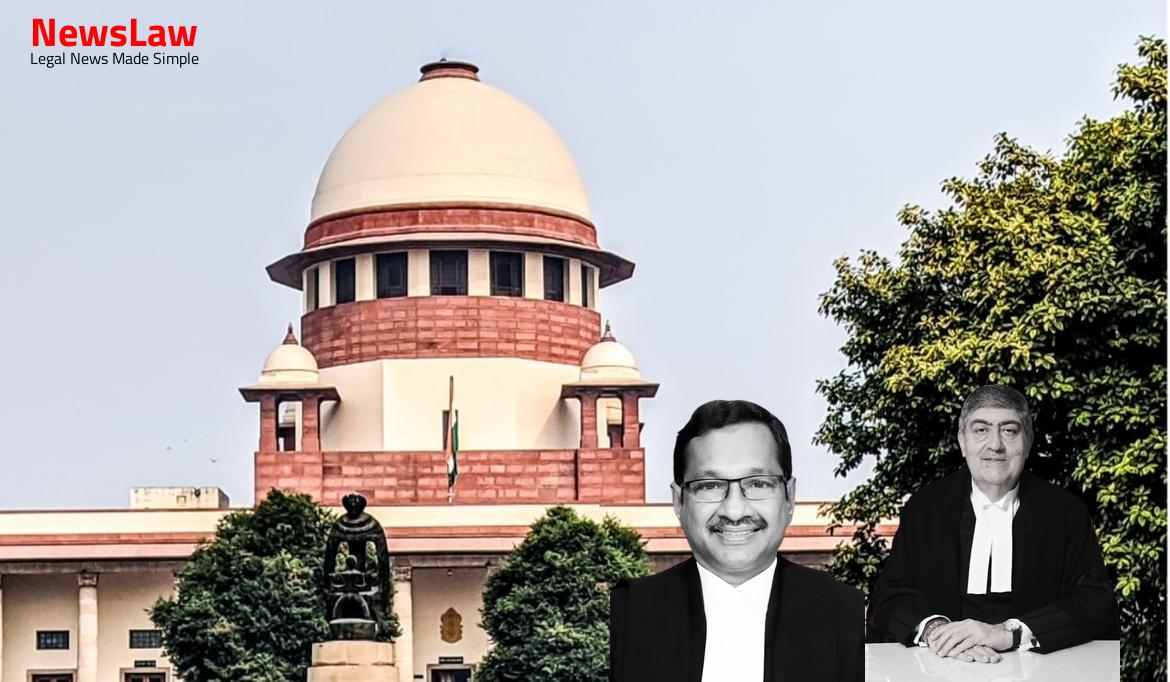The short question that arises for consideration in this case is whether a minority educational institution in the State of Madhya Pradesh is required to get the fees charged by it fixed by the Admission and Fee Regulatory Committee under the provisions of the Madhya Pradesh Niji Vyavsayik Shikshan Sanstha ( Pravesh Ka Viniyaman Avam Shulk Kadharan)
Also Read: https://newslaw.in/case-type/civil/courts-analysis-on-bona-fide-requirement-in-eviction-petitions/
Adhiniyam, 2007 (for short, ‘the Act of 2007’)?
The AFRC responded, vide letter dated 14.11.2019, stating that a decision had been taken in the meeting held on 08.11.2019 that the fees of minority 2 institutions should be fixed by the AFRC. The appeal was dismissed by the appellate authority, by order dated 10.01.2020, holding that the procedure of regulating/fixing of fee was common to both minority and non- minority institutions.
Managing Committee, Contai Rahamania High Madrasah and others [(2020) 1 SCT 627(SC)], wherein this Court referred to its earlier edict in Ahmedabad Saint Xaviers College Society and another Vs.
Also Read: https://newslaw.in/case-type/criminal/analysis-of-evidence-and-courts-ruling/
Section 4(1) provides that the State Government shall, by notification in the official gazette, constitute a committee to be called the ‘Admission and Fee Regulatory Committee’, for the supervision and guidance of the admission process and for the fixation of fees to be charged from candidates seeking admission in a private professional educational institution. Section 4(8) provides that the AFRC may require a private aided or unaided professional educational institution or a deemed university to furnish, by the prescribed date, information as may be necessary for enabling the AFRC to determine the fees that may be charged by the institution in respect of each professional course and the fees so determined shall be valid for such period as may be notified by the State Government.
State of Karnataka and others
[(2002) 8 SCC 481], the majority opinion voiced by B.N.Kirpal CJ, speaking for himself and five other learned Judges, answered the question as to whether statutory provisions regulating facets of administration of educational agencies, including regulation of fees, would interfere with the right of administration by minorities in the negative, but held that such regulatory measures should be minimal in the case of unaided minority educational institutions. To put it differently, per the majority, in the establishment of an 6 educational institution, the object should not be to make a profit inasmuch as education is essentially charitable in nature, but there could, however, be a reasonable revenue surplus, which may be generated by the educational institution for the purpose of development of education and expansion of the institution.
Pai Foundation ( supra ), setting up a reasonable fee structure is also a component of the right to establish and administer an institution, within the meaning of Article 30(1) of the Constitution, and every institution is free to devise its own fee structure subject to the limitation that there can be no profiteering and no capitation fee can be charged directly or indirectly or in any form. K eeping in mind the fact that the State has the power to regulate fixation of fees in the interest of preventing profiteering and such fixation of fees has to be regulated and controlled at the initial stage itself, this Court observed that the parameters laid down in Section 9(1) of the Act of 2007, which have to be kept in mind while fixing the fees were, in fact, the ones enunciated in earlier judgments of this Court.
Reference was made to the observations contained therein to the effect that each professional educational institution can furnish information with regard to the fees that it proposes to charge from the candidates, 8 taking into account the cost of components, the reasonable surplus required for growth and development and other factors relevant to impart professional education as mentioned in Section 9(1) of the Act of 2007, and that the function of the AFRC is only to find out, after giving due opportunity of hearing to the institution, whether the fees proposed by the institution is based on the factors mentioned in Section 9(1) of the Act of 2007 and did not amount to profiteering and commercialization of education.
Also Read: https://newslaw.in/case-type/civil/validity-of-tamil-nadu-land-acquisition-acts/
The High Court accordingly concluded that the provisions of Sections 4(1), 4(8) and 9 of the Act of 2007, in substance, empowered the AFRC to be only satisfied that the fee proposed by private professional educational institutions did not amount to profiteering or commercialization of education and was based on the factors mentioned in Section 9(1) of the Act of 2007 and held that the Act of 2007, therefore, did not violate the right of the private professional educational institution to charge its own fee. The learned Judge accordingly held that the State had the legislative competence to enact the Act of 2007 and regulation of fixation of the fees was to protect the right of the students in having access to higher education without being subjected to exploitation in the form of profiteering. In effect, the liberty given to unaided institutions to propose the fees that they wish to charge, keeping in mind the factors set out in Section 9(1) of the Act of 2007, stands protected and it is only by way of regulating the fees so proposed that the AFRC would exercise the power of reviewing the proposed fees, after giving due opportunity of hearing to the educational institution concerned. It is not open to the AFRC to seek to unilaterally fix the fees to be charged by the appellant society for the professional courses offered through its educational institutions.
Case Title: ICON EDUCATION SOCIETY Vs. THE STATE OF MADHYA PRADESH (2023 INSC 256)
Case Number: C.A. No.-001760-001760 / 2023



